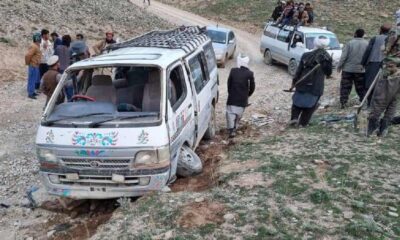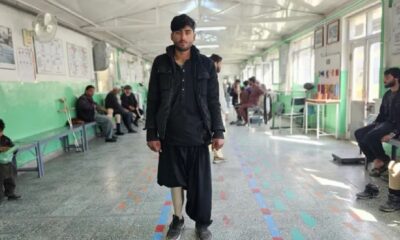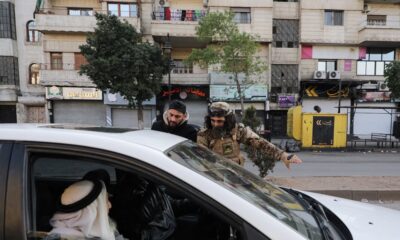Latest News
Petraeus downbeat about Afghanistan’s future post pullout
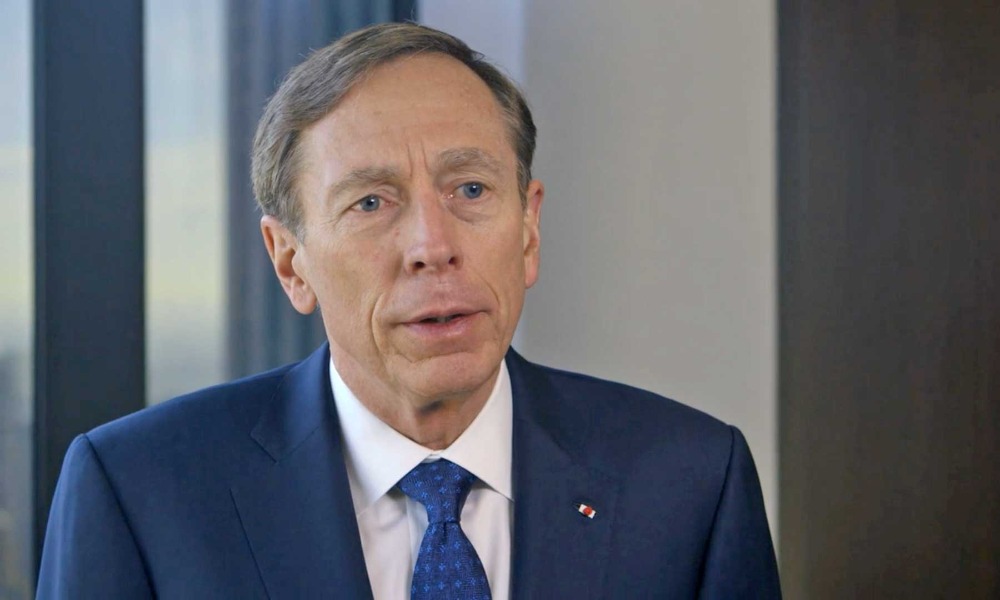
General David H. Petraeus, retired US Army general and former director of the CIA said on Saturday he fears the United States will come to regret their decision to withdraw all troops and warned of a possible civil war.
In an interview with VOA, Petraeus said despite measures being taken to mitigate risks by extremists from re-establishing safe havens in Afghanistan, he fears “that we will come to regret this because there could very well be the return of a sense of civil war, a reality of civil war.”
He said he sees “no willingness” on the Taliban’s part to commit to meaningful, verifiable and sustainable agreements “that would be necessary to enable some kind of sharing of power; some kind of again, diplomatic resolution of the issues and instead I see a Taliban who has gotten everything that they wanted from the negotiations.”
He stated the Taliban has gotten its leaders and fighters out of prison, under the Doha agreement signed between the United States and the Taliban in February last year.
“Now they are getting the U.S. to leave which then also means that our coalition partners leave,” and the foreign contractors who do the maintenance on military helicopters and fixed-wing aircraft for the Afghan defense force will also leave, he said.
He said based on this alone, one will see an erosion of security and the people will “fall back on their tribe, their ethnic group, their sectarian affiliation, their political party”.
“You may see again the kind of civil war that characterized the situation in Afghanistan after the collapse of the post-Soviet regime in Kabul which took place two or three years after the departure of Soviet forces and when the Soviet funding eventually ran out.”
But he said he had enormous admiration for the Afghan security forces who he said were fighting and dying for their country and for a democratically elected government.
“They’re fighting for a country that is very different from the one that the Taliban will establish if they are able to regain control of the country.”
He stated that should this happen, the Taliban would return Afghanistan to a “theoretic medieval government structure”.
But he said he hopes his fears are misplaced and that “this does not come to pass”.
Petraeus said he was concerned that foreign contractors might feel that once troops have withdrawn that security will not be adequate enough for them to remain, adding that he does “not see any willingness” on the Taliban’s part to “negotiate in good faith”.
He said he is aware that U.S. military commanders and American intelligence officers among other are working hard to identify ways to mitigate the risks of al-Qaeda or ISIS (Daesh) or other extremist group from establishing sanctuaries in Afghanistan,
He questioned however whether the U.S. would in fact get a base in a neighboring country stating that Pakistan has refused the request and so has Uzbekistan.
He pointed out that any flights out of bases in the Gulf states is a long commute – particularly for drones which he said had been the “unblinking eyes that were able to establish over so many areas in Afghanistan to identify when you see what could be extremist activity and the establishment of sanctuaries and
perhaps training bases and ranges and a variety of other facilities that might be the hub.”
He also said that the U.S. had destroyed on a number of occasions over the past 20 years attempts by al-Qaeda to re-establish bases in eastern Afghanistan and “more recently one down in southern Afghanistan, in Helmand province.”
This Petraeus said was “a bit of a surprise”.
However, he blamed the Taliban, the Haqqani network and the Islamic Movement of Uzbekistan for providing the grounds for terrorist organizations to establish themselves in Afghanistan.
Petraeus said it is these groups that are “eroding the security posture of Afghanistan, who are creating ungoverned spaces or spaces governed by the Taliban such as they are, and it is a fact that Islamist extremists will exploit ungoverned spaces anywhere in the Muslim world and that certainly includes Afghanistan.
He also said the U.S. has a “moral obligation” to Afghans who worked alongside American soldiers on the battlefield as interpreters, as well as those who played other roles, and said these people “and in many cases that of their family members” should be granted visas to live in the U.S.
He said while this is a long process, various options are being examined including some kind of real airlift of these individuals – even to a third Country where they could be processed.
“There is a recognition very much on Capitol Hill, certainly at the State Department in the Pentagon and increasingly in the White House that there is this moral obligation that we need to take care of those who did risk their lives as a result of what they did together with our forces.”
He said he thinks there will be some solution that will be forthcoming. “I just hope it is developed quickly enough so that we don’t end up leaving many of them behind and not meeting that very important obligation that we have incurred.”
He said he hopes however that his worst fears are not realized and that his assessment is inaccurate and that the Afghan security forces continue to receive solid assistance from the U.S. and NATO allies, from diplomats and aid workers and other international organizations.
He also said he hopes the Afghan security forces show they can stand up to the Taliban on their own and that contractors stay on in Afghanistan to maintain the equipment and weapons systems.
Petraeus also stated he hopes the Taliban will eventually engage in “true negotiations” and be willing to compromise on some issues.
He said however he does not see “enormous leverage” for U.S. special envoy Zalmay Khalilzad’s continued diplomatic efforts “given that we have told the Taliban that we are leaving.”
Latest News
Thirty, killed, 155 injured in traffic accidents in Afghanistan during Eid
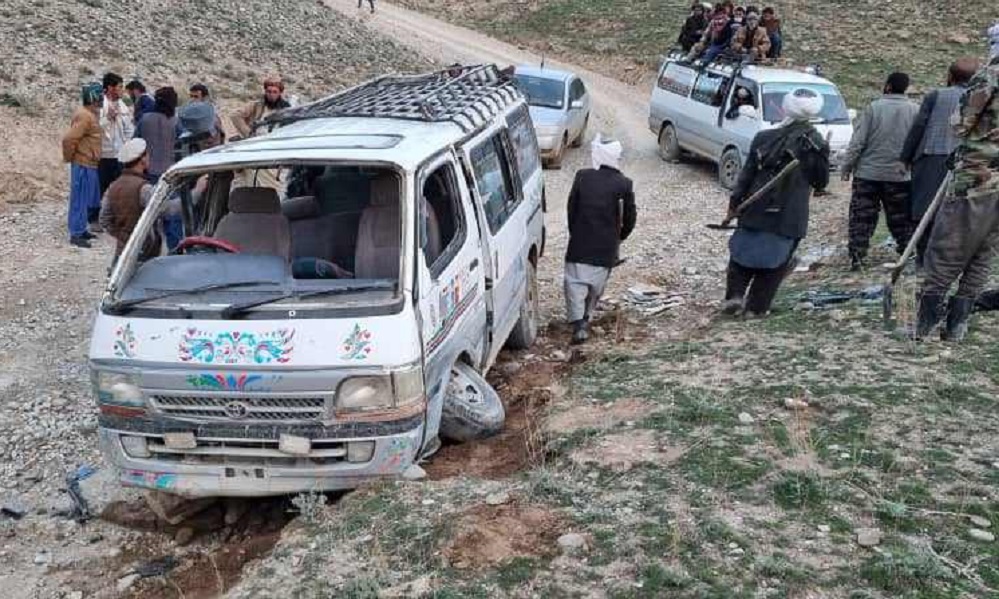
As many as 80 traffic accidents occurred across Afghanistan on the last day of Ramadan and the three days of Eid-ul-Fitr, resulting in 30 deaths and 155 injuries, the General Directorate of Traffic of the Ministry of Interior Affairs has announced.
It said in a statement that the number of traffic accidents during Eid this year has decreased compared to last year, as there were 98 accidents during Eid last year, leaving 50 dead and 185 injured.
The statement said that the fatalities in traffic accidents during Eid this year include 19 men, 2 women and 9 children.
The injured include 117 men, 8 women and 30 children.
Latest News
More international support desperately needed for Afghanistan mine action: UNAMA
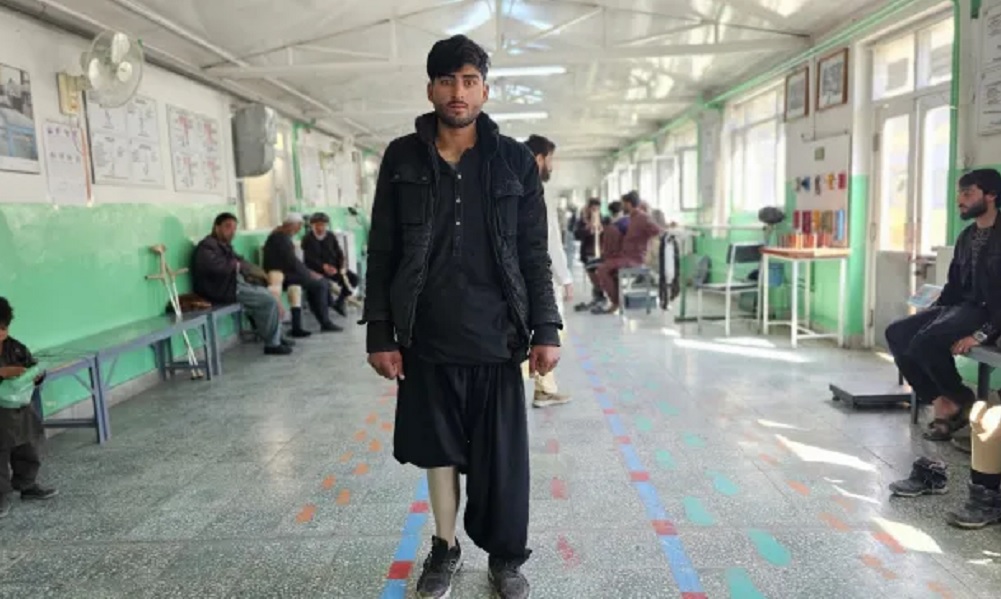
More international support is desperately needed for mine action in Afghanistan, which is one of one of the countries on earth that is most impacted by the explosive remnants of war, the United Nations mission in Afghanistan, UNAMA, said on Friday.
Marking the International Day for Mine Awareness and Assistance in Mine Action, UNAMA said on X that over decades of conflict, tens of thousands of ordinary Afghans have lost their lives or limbs because of landmines and unexploded ordnance, adding that most of the victims today are children.
“Mine clearance work is painstaking, dangerous, and costly. Education to prevent accidents, and rehabilitation for those left with disabilities is also essential,” UNAMA said.
UNAMA called for more international support to Afghanistan, saying it “saves lives, and serves as an investment in a safer, more stable, and prosperous future for Afghanistan.”
In 2024, the International Committee of the Red Cross (ICRC) recorded that there were 434 children among those injured or killed in 251 incidents linked to diverse forms of explosive ordnance. This accounts for over 76 percent of the total number of recorded casualties.
Latest News
Khyber Pakhtunkhwa chief minister proposes permanent residence for Afghan refugees

Khyber Pakhtunkhwa Chief Minister Ali Amin Gandapur has proposed that Afghan refugees be granted permanent residence in Pakistan.
This comes as the Pakistani government is deporting Afghan refugees citing security concerns.
There are currently 2.1 million registered Afghan migrants in Pakistan, more than half of them in Khyber Pakhtunkhwa province.
Pakistani officials have repeatedly claimed that attacks in the country are planned on Afghan soil and that Afghan citizens have been involved in a number of attacks. The Islamic Emirate, however, has denied the claim, saying Afghanistan is not responsible for Pakistan’s “security failure”.
While the chief minister of Khyber Pakhtunkhwa has called for permanent residence for Afghan refugees, its governor, Faisal Karim Kundi, has criticized the statement as “absurd.”
Kundi said the current security crisis in Pakistan is deeply linked to Afghanistan and 70 percent of recent attacks in Pakistan have been planned on Afghan soil.
He also claimed that weapons left over from foreign forces in Afghanistan are now being used against Pakistan, a claim the Islamic Emirate has previously denied.
-

 World5 days ago
World5 days agoMyanmar quake death toll hits 1,700 as aid scramble intensifies
-
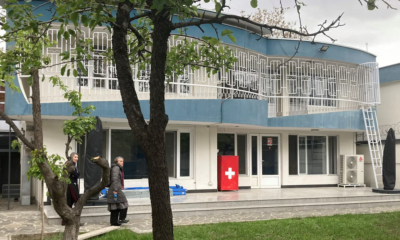
 Latest News4 days ago
Latest News4 days agoSwitzerland re-establishes presence in Kabul with humanitarian office
-
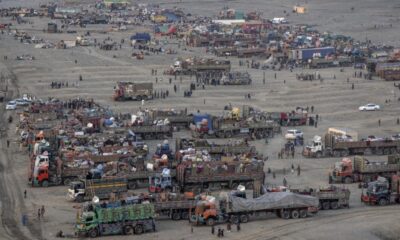
 Latest News4 days ago
Latest News4 days agoPakistan plans to expel 3 million Afghan refugees this year
-

 World4 days ago
World4 days agoSouth Korea, China, Japan seek regional trade amid Trump tariffs
-
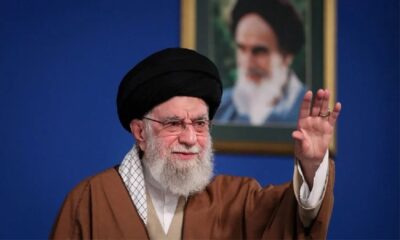
 Regional4 days ago
Regional4 days agoIran’s Khamenei warns of ‘strong’ response if US attacks
-

 Latest News3 days ago
Latest News3 days agoAfghanistan’s reconstruction is in the interest of EU: Uzbek president
-

 Latest News3 days ago
Latest News3 days agoUS won’t rest until all Americans detained in Afghanistan brought home: Rubio
-

 Latest News3 days ago
Latest News3 days agoBulgaria brings five people to trial over deaths of 18 Afghan migrants


